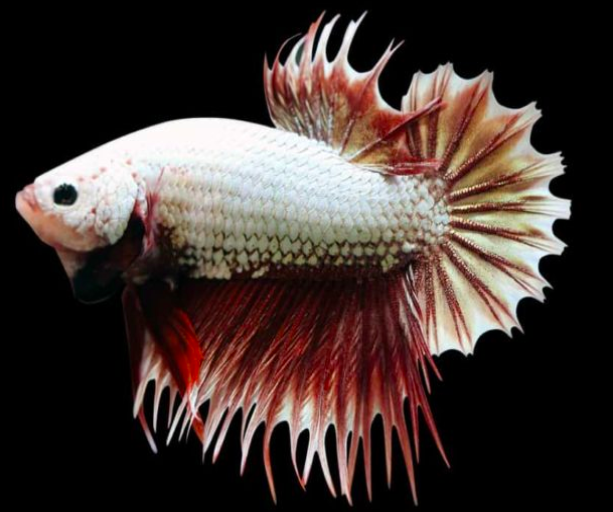Betta fish are social, active fish that prefer to stay in groups. They thrive in a community, and their personality reflects this coexistence. Betta fish tend to become detached from the rest of their herd when they feel threatened or unappreciated, or if there is an issue among the group. Social distrust, bullying behavior, and coldness may also be factors that lead to betta fish isolation. When your giant plakat betta fish shows other signs of distress such as an inability to eat or maintain its color and condition, it’s a good idea to take it to a hobbyist as soon as possible. These other indications of betta death may be symptoms of something more serious, but you can’t tell for sure until you conduct a screening. Here are some common signs that mean your Betta Fish is probably dying:
Betta Fish Is Stressed Or Actively Ill
If your Betta fish is suddenly showing signs of stress or illness, it’s a good sign to start taking action. You should take your fish to a hobbyist or trusted pet store immediately if you notice droopy fins, frequent energetic outbursts, an inability to eat, or an overall lack of interest in food. Betta fish are susceptible to illness and disease, and these signs could be an indication that your fish is not feeling well. Certain environments, unbalanced feeding regimes, poor water conditions, and other factors can stress your pet out and make it susceptible to disease. You should take steps to reduce the stress of your Betta Fish if you notice any of these symptoms.
Betta Fish Won’t Eat Or Shows Signs of sickness
If your Betta Fish is not eating, you should take it to a pet store immediately. A betta fish that is sick or not eating is going to die very soon, so you need to act quickly. Signs of a Betta that is not eating include an unwillingness to eat, an inability to maintain its color and condition, or an overall lack of interest in food. Betta fish are susceptible to infections and disease, so if your pet is not eating, it’s a good idea to take it to a hobbyist or immediately take it to a pet store.
Betta Fish Has Mucus Around Mouth Or Eyes
Betta fish mucus is an indication of sickness or stress. You should take your Betta fish to a pet store immediately if you notice that your fish has a yellow or green mucous discharge around its mouth or eyes. This could be an indication of bacterial infection or stress. Betta fish are susceptible to bacteria, so if your fish is not eating and has a green mucous discharge, it’s a good idea to take it to a hobbyist. Betta fish are also susceptible to stress and disease, including parasites.
Betta Fish Shakes Or Flutters Its Tail When It’s Confused, Upset, Or In Fear
If your Betta Fish is shaking its tail or fluttering in fear and confusion, it’s a good sign to start taking action. You should take your Betta Fish to a pet store immediately if this is the case. Betta fish are susceptible to stress and disease. You should also see a veterinarian if your pet is in distress, or if you notice it is getting weaker and doesn’t respond to treatment. Betta fish are susceptible to stress and disease, and they can also become confused or in fear during a transition.
Betta Fish Has Repetitious Breathing (Respiratory Irregularity)
Breathing irregularly is a sign that your pet is in distress. Betta fish are susceptible to stress and disease, so if you notice that your pet is breathing irregularly, it’s a good idea to take it to a hobbyist immediately. You should also take your fish to a vet if you notice that your pet is breathing less than usual or not at all. Betta fish are susceptible to stress and disease, and they can also sometimes become confused, in fear or in distress.
Conclusion
While it is sad to witness the death of your fish, it is important to understand what to expect when your betta fish dies. Knowing the signs of betta fish death will help you take action quickly when the time comes. Remember, these signs don’t mean your fish is dying, but they could indicate an illness or problem that could be serious. The best way to prevent the death of your Betta fish is with a healthy, balanced diet and clean, filtered water.


